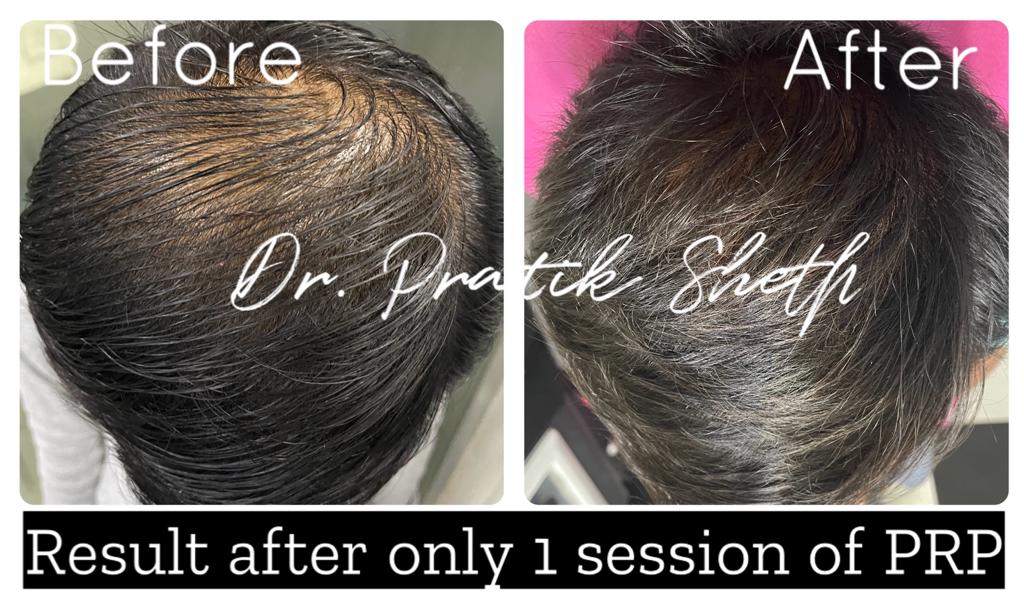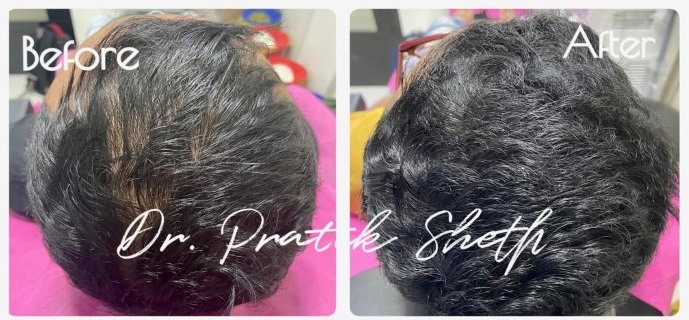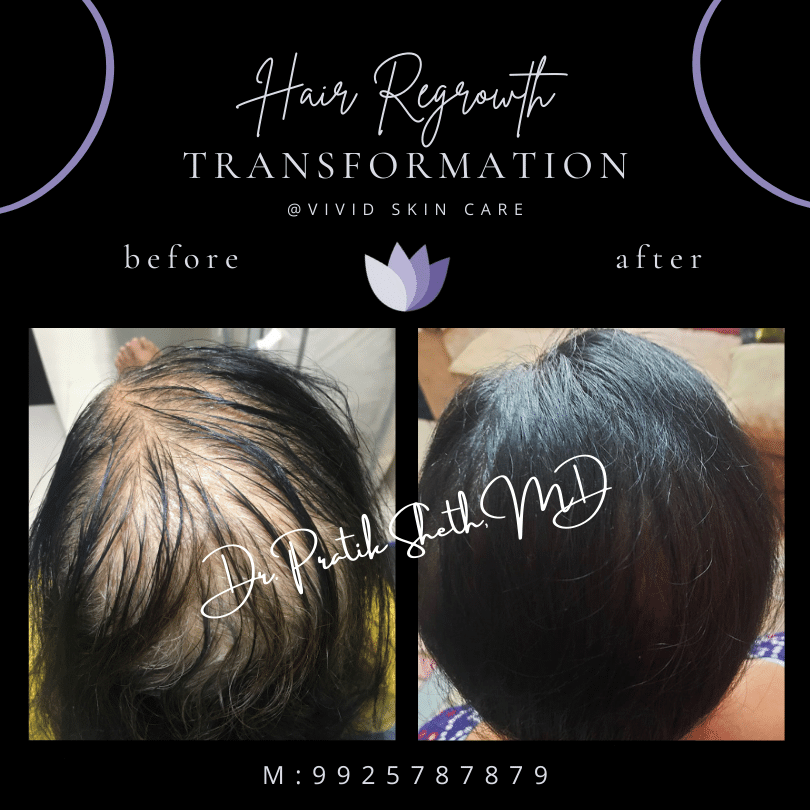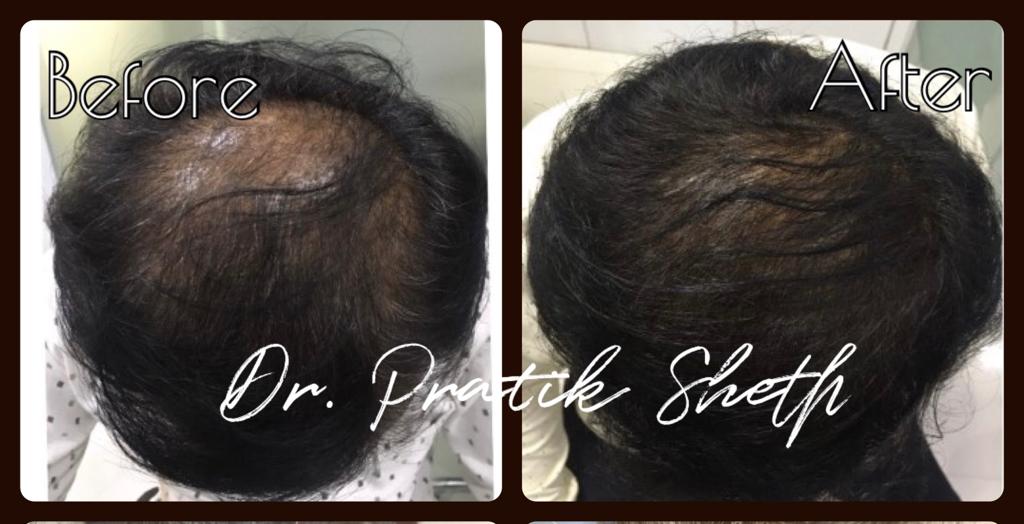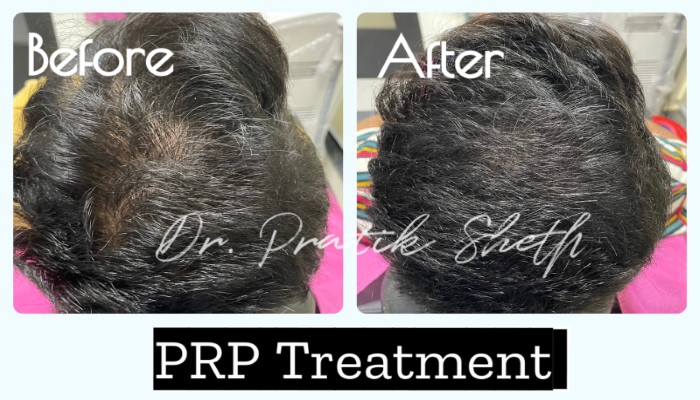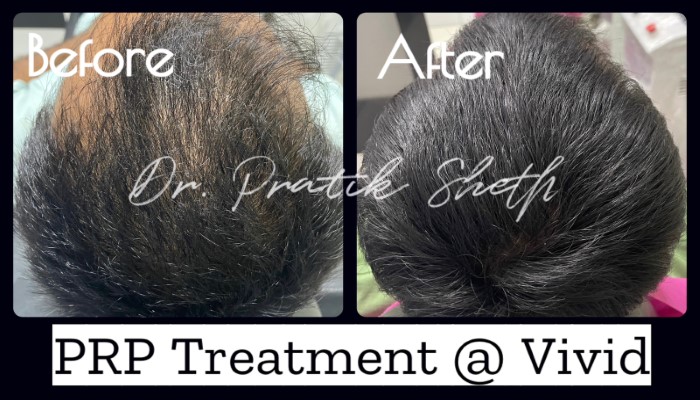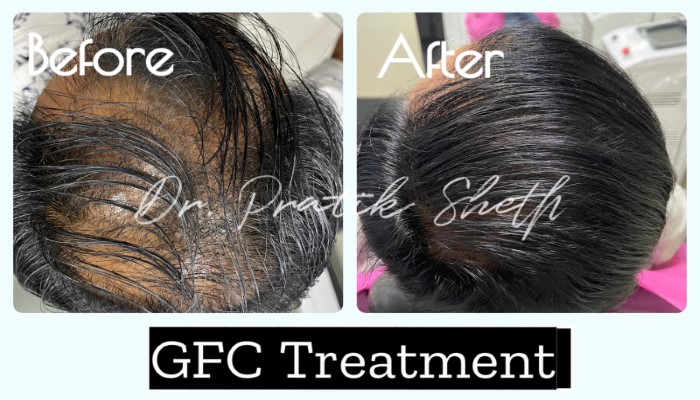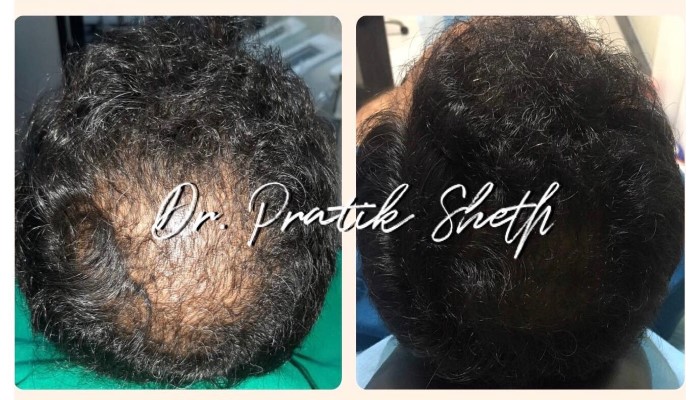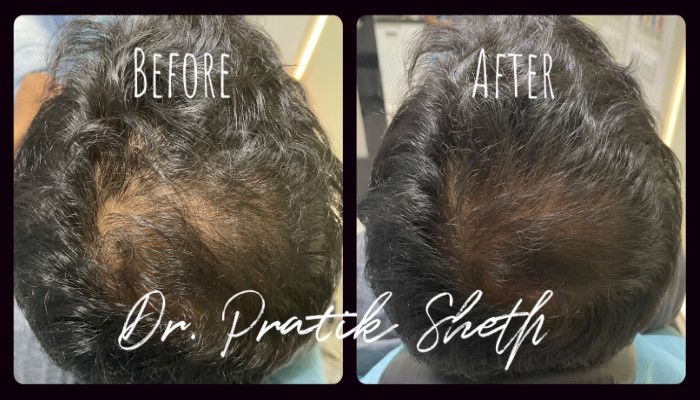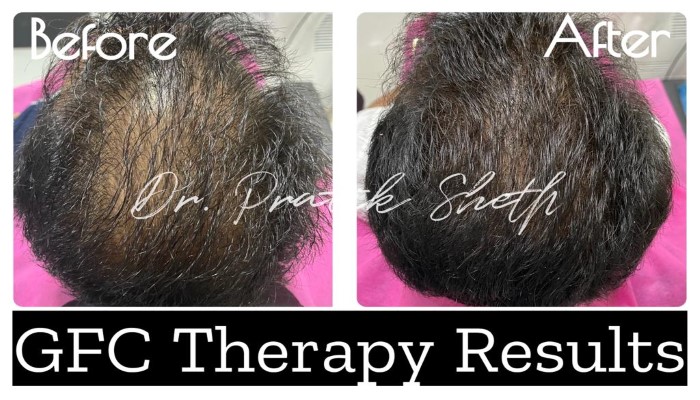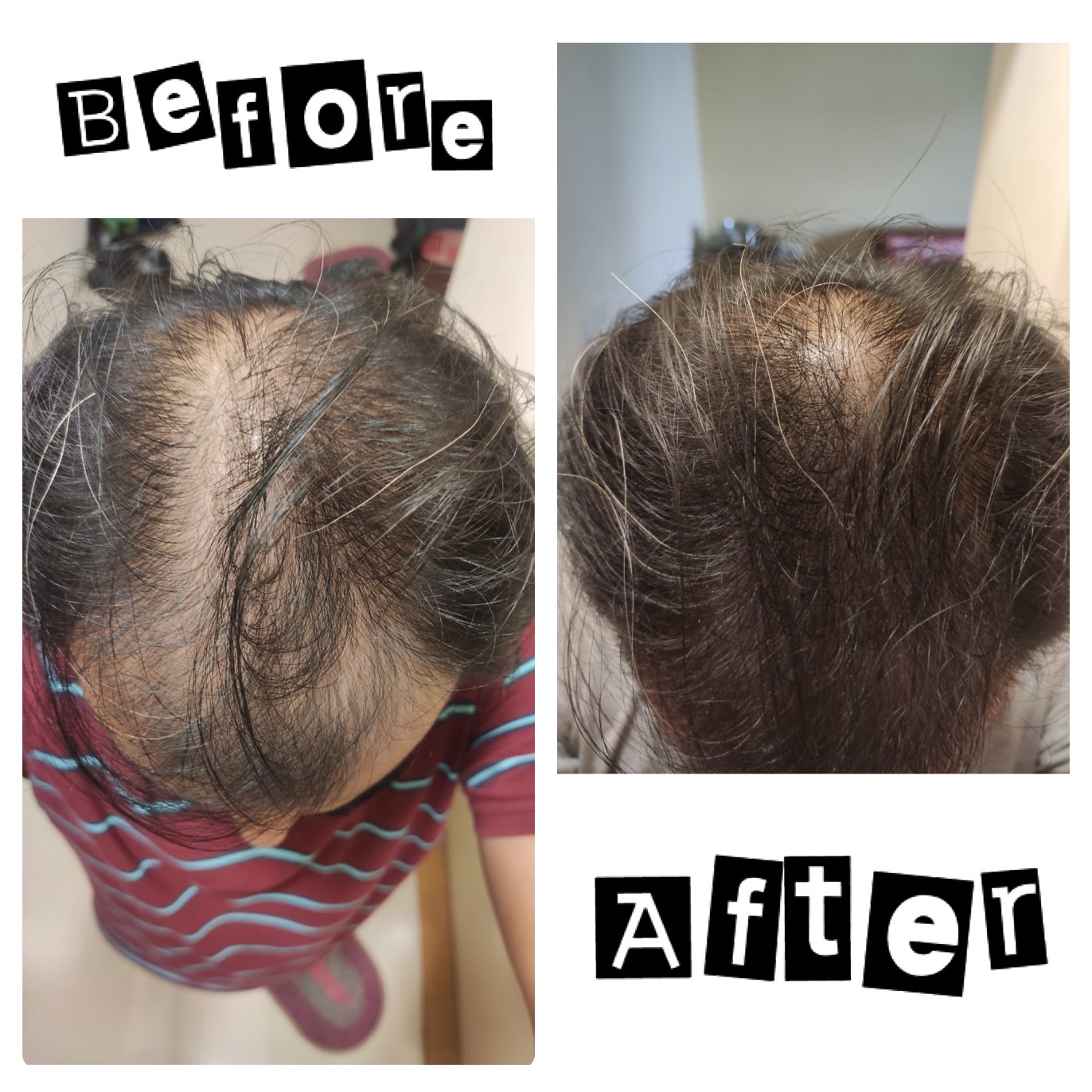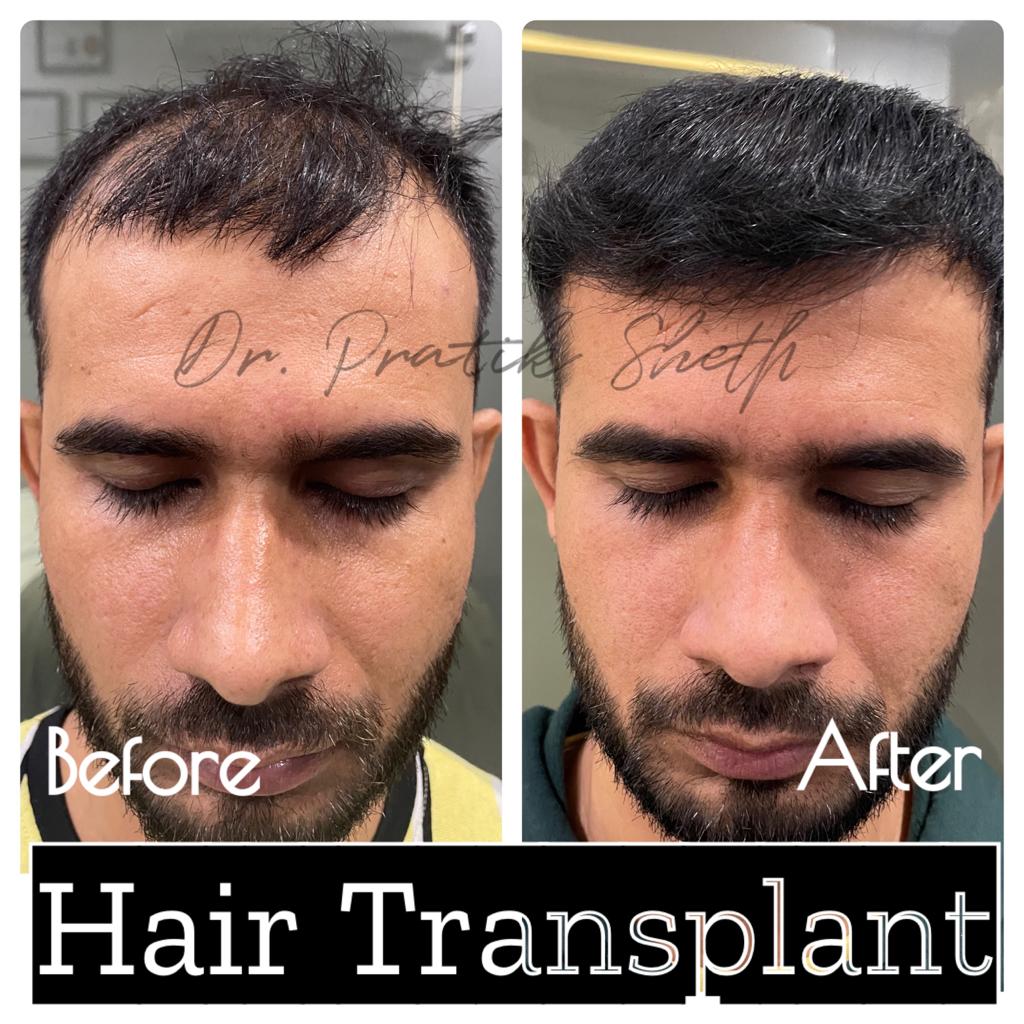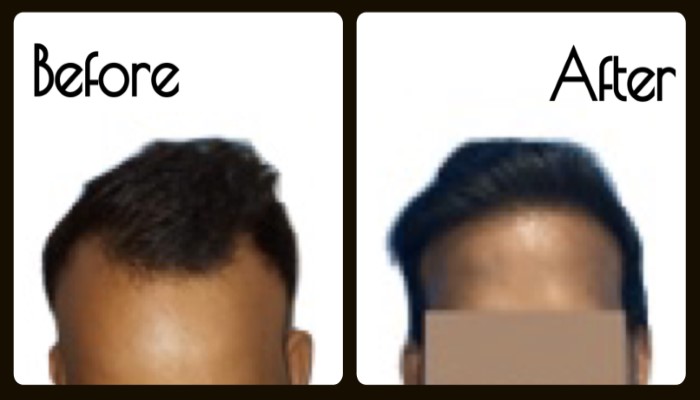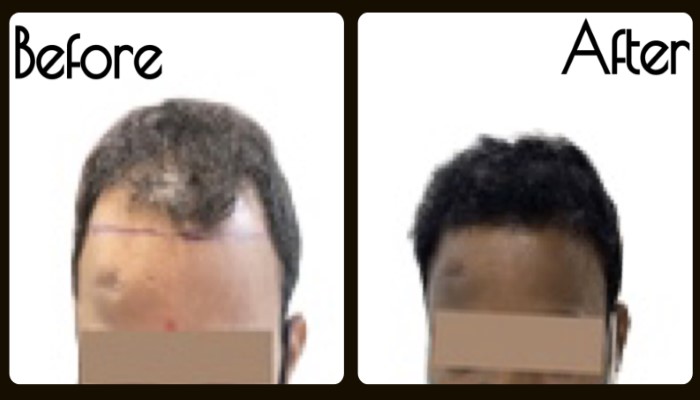Male Pattern Baldness
Androgenic Alopecia
Hair Loss in Men
Male pattern baldness is also known by androgenetic alopecia, which is the commonest cause behind hair loss in males.
While some take it casually, others can be seen worried about it, thus getting a professional help in terms of restoring their lost glory, the hair.
It's caused by genes you get from your parents.
These genes may affect how sensitive your hair follicles are, to a hormone called DHT, which makes them shrink.
As the hairs gets smaller, the hair that grows back tends to be finer, thinner, and shorter. This process is called miniaturization of hair follicle.
According to Norwood-Hamilton Grade for Baldness, the stages of male pattern baldness vary from Grade 1 to 7, depending upon the occurrence of it in individuals.
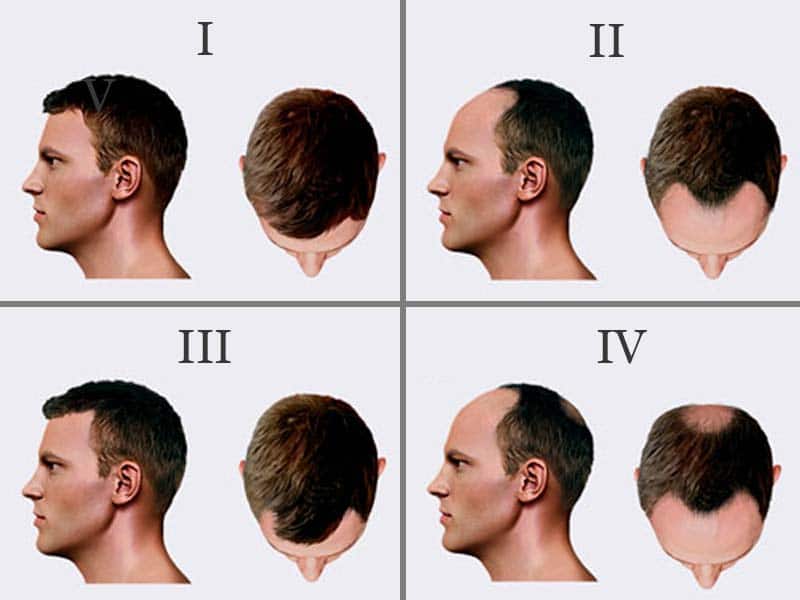
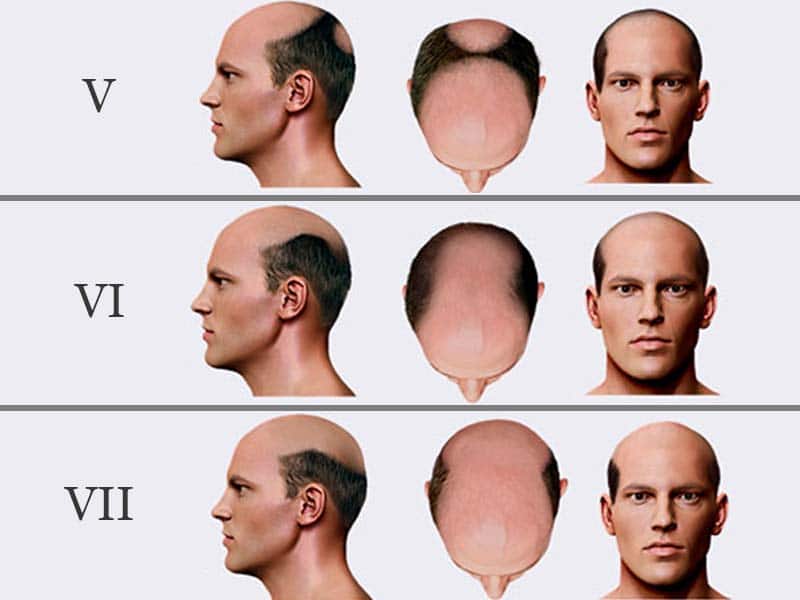
The grading of hair loss helps to decide the treatment plans and outcome.
Since male pattern baldness is a genetic condition, there are high chances of occurence if family members like mother or father or anyone from the maternal or paternal side is bald.
Although it entirely depends on the gene expression that carry the potential of making an individual turn bald.
Yes, baldness can occur despite not having any history of it in your family.
The prime cause behind it can be the hormonal change and its actions.
Furthermore, sometimes the genes responsible for hair loss are inactive state in parents that turns expressive in your body, resulting in baldness.
We, at Vivid Skin Care & Cosmetology Centre, a renowned Skin & hair clinic in Rajkot are offering the best, possible treatments available in the new-age that are both advanced and known to bring out realistic and fruitful results.
Some of the treatments include:
- Medical Treatment of Hair Loss
- Hair nutrional supplements
- Minoxidil
- Finasteride
- Procedural Therapies for Hair Loss
- Platelet based Growth Factor Therapy
- Growth Factor Concentrate (GFC)
-
Lifestyle changes: Some people find that making changes to their diet and getting enough sleep can help to improve the health of their hair. In addition, avoiding certain styling techniques and using a gentle shampoo can also be helpful.
-
Surgical Management of Hair Loss
- Hair Transplant
It's important to note that male pattern baldness is a genetic condition. These treatment options can help to slow hair loss and improve the appearance of the hair.
Generally, both the medicines and therapies are considered to be effective for showing positive results in male patterned baldness. Though, it entirely depends upon the regularity of treatment by the patient.
"Earlier you start treatment, more are the chances of getting hair back by medical treatment and therapies."
Once hairs are lost, hair transplant treatment is considered as the best option, offering a good result in restoring the hair growth that’s thick and healthy in nature.
Usually, it takes approximately 4-6 months’ post treatment to see a visible change.
Treatment needs to be continued for long duration as advised by Dr. Pratik Sheth for getting improving results.
Hair transplant can be considered for bald areas where hairs have become very fine and small or the area has become totally bald.
Initially you can consider taking medicines and therapy treatment for stabilising your hair growth and later, can opt for FUE hair transplant in Rajkot at Dr. Pratik Sheth's Vivid Skin Care & Cosmetology Centre.



Telogen effluvium is a form of temporary hair loss of scalp hairs that usually happens after physical or mental stress, a shock, or a traumatic event.
If the disease is severe, hair loss might be visible after 1.5-2 months, eventually stopping after few weeks or so.
If hair shedding continues for more than 6 months, then it is called Chronic Telogen Effluvium. A person with this condition does not lose all their hair, although it may become noticeably thin.
The hair cycle typically has three phases:
- Anagen or growth phase.
- Catagen or transitional phase.
- Telogen or resting phase.
Telogen effluvium is associated with the telogen phase. Normally, 5 to 10 percent of a person’s hair is in the telogen phase at any one time.
With telogen effluvium, the anagen phase slows down, meaning that fewer hairs enter the next two stages. With this condition, around 30 percent of hair follicles move into the telogen phase, which means that hair shedding occurs.
Disturbances to the hair cycle can be caused by a number of triggers, including:
- Severe stress: Prolonged periods of stress can result in telogen effluvium. Hair loss typically occurs about 3 months after the stressful event.
- Poor diet: Hair requires key nutrients including protein, iron, B-vitamins, and zinc to grow. A shortage of these nutrients may affect the quality and quantity of a person’s hair.
- Sudden weight loss: Weight loss or chronic calorie restriction, such as in anorexia nervosa, can cause the hair to shed.
- Pregnancy and childbirth: During pregnancy, more hair is in the growth phase for longer. Hormonal changes that occur 3 to 6 months after birth can cause hair to shed. This is called post-partum telogen effluvium.
- Menopause: Hormonal changes that occur during the menopause may also cause telogen effluvium.
- Certain drugs: Certain medications and recreational drugs can cause hair loss.
- Underlying health conditions: These can include autoimmune disease, conditions that affect the thyroid gland, and alopecia areata.
- Surgery: Depending on the type of procedure, length of stay in hospital, medications, and overall nutritional status.
- Metal toxicity: Contact with toxic chemicals in metal can lead to hair loss.
While diagnosing cause for hair fall or hair loss, your dermatologist will examine the hairs that have fallen out.
Several tests can be performed to diagnose hair loss:
- The diameter and length of the lost hairs can signal this condition, and may help a doctor to differentiate between this and alopecia.
- A hair pull test may be carried out to see how much hair is being shed.
- A wash test can be performed whereby the number of hairs lost during washing is counted.
- A blood test may be useful to work out the cause of hair loss. These tests can help diagnose iron deficiency or thyroid insufficiency.
A dermatologist will be able to diagnose the cause of hair fall or hair loss and offer advice. They will look at other indicators of hair health, such as the appearance of the scalp, any patches of baldness, or more generalized hair thinning.
- Eat a healthy, balanced diet rich in proteins, vitamins, and minerals
- Avoid tight hairstyles and harsh hair care products
- Avoid heat styling tools
- Use a gentle, sulfate-free shampoo
- Manage stress through healthy coping mechanisms such as exercise, meditation, and therapy
If you are concerned about hair loss, it is important to speak with a medical professional for a proper diagnosis and treatment plan.
In most cases, hair fall may stop by itself. If it doesn't, identify what is triggering the hair fall. Once the trigger has been established and addressed, the hair cycle should normalize and hair will begin to grow back.
There are a number of treatment options available for both men and women experiencing hair loss. These include:
- Medications such as minoxidil and 5-alpha reductase inhibitors.
- Specific medicines addressing the cause
- Hair transplant surgery
- Growth Factor Concentrate
It is important to consult with a dermatologist or other medical professional to determine the cause of your hair fall or hair loss and the most appropriate treatment plan.








.png)
